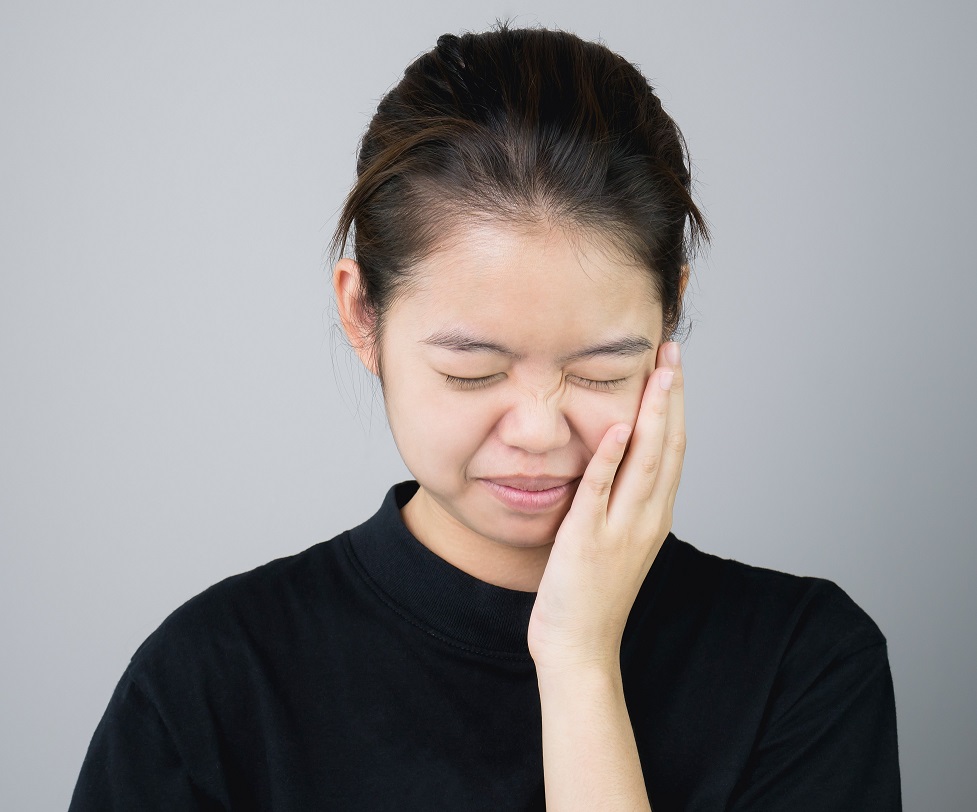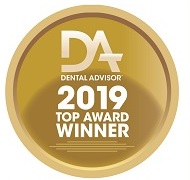Australian dentists have said they are worried by the number of people coming to them with chemical burns and ulcers after using teeth-whitening products they saw being spruiked by celebrities and influencers online.
Key points:
- DIY teeth-whitening products are widely promoted on social media by celebrities and influencers
- The Australian Dental Association is urging people not to use the DIY products because of the risks involved
- Ad Standards relies on the public alerting it to advertising that breaches its codes
“The worst case we’ve seen in our practice is very severe gum burn, and it is a chemical burn,” dentist Norah Ayad told the ABC.
“This patient had severe ulceration all over their mouth, because this bleach had come into contact with everywhere around their mouth, their cheeks, their lips, their tongue and all the way around their gumline.
“It took several weeks to resolve, and the patient was in a lot of pain.”
In the past few years an array of toothpastes, LED lights, powders, strips, oils, gels and procedures have been spruiked online as relatively cheap teeth whiteners that can be used at home.
Celebrities such as UFC fighter Conor McGregor, various members of the Kardashian-Jenner family, soccer star Zlatan Ibrahimovic and other social media influencers have endorsed the products online.
Dr Ayad said she saw someone in pain because of a DIY product at least once a week at her Gold Coast practice.
She said the vast majority of these patients were in their late teens to early 20s.
“Certainly, some of our younger teenagers, leading up to special events like formals, they want those white teeth for all their photos. We are seeing them accessing these kinds of products.”
But the Australian Dental Association (ADA) said it was not only younger people who were being fooled by the online promise of a gleaming smile.
As part of Dental Health Week, the association told the ABC it was a national problem with no age limit.
Charcoal products found to erode enamel
Sydney dentist and ADA spokeswoman Mikaela Chinotti said there was no single product or brand that was the focus of concern, but rather an array of goods in the burgeoning industry.
Some have such a weak concentration that they do nothing, while others sold online have concentrations of chemicals that would not be allowed on the shelves of Australian stores.
“There are companies at this time boasting over a million sales to consumers trying to whiten their teeth,” Dr Chinotti said.
“The main culprits are DIY whitening kits, which are forms of whitening solution, as well as charcoal products, which are toothpastes and powders.”
Videos and images of people brushing their teeth with black pastes have been trending on social media.
A study published in the British Dental Journal in May examined 50 charcoal-based products and concluded they could cause more harm than good.
Dr Chinotti said the researchers found the charcoal could scratch off the protective layer on teeth, leaving them bare and exposing cracks in teeth to further damage.
“The charcoal products were found to cause abrasion to enamel, discolouration of white filling materials, the inclusion of human carcinogenic materials,” she said.
“As well, the activated charcoal can absorb fluoride, rendering it useless in the paste.”
She said the ADA urged people not to use charcoal products.
 PHOTO: Dentists say their concern is not focused on any particular brand. (Facebook: Snow At-Home Teeth Whitening)
PHOTO: Dentists say their concern is not focused on any particular brand. (Facebook: Snow At-Home Teeth Whitening)‘If it sounds too good to be true, it probably is’
She also said the Australian Government and regulators should do more to monitor potentially dangerous products.
“The manufacturers of these products need to abide by the same strict regulations that apply to sales and advertising that apply to dental professionals,” she said.
Traditional advertising on television, radio and in print media is governed in Australia by consumer affairs agencies and Ad Standards, and the same standards apply to the online sphere.
But it is an increasingly difficult realm to manage.
 PHOTO: Soccer star Zlatan Ibrahimovic has posted videos to social media of himself whitening his teeth. (Instagram: HiSmile Teeth)
PHOTO: Soccer star Zlatan Ibrahimovic has posted videos to social media of himself whitening his teeth. (Instagram: HiSmile Teeth)The Australian Competition and Consumer Commission (ACCC) receives about 13,000 reports each year about products, but since 2013 has only assessed 17 reports of injuries associated with DIY teeth-whitening products.
Ad Standards chief executive Fiona Jolley said it had been looking at online ads since 2006, but last year only 3 per cent of all complaints it received were about social media advertising.
“Social media and online advertising is a very broad space,” she said.
“Ad Standards operates on a complaints basis, so we are not out there actively policing ads, so it is important that if people see something breaching the codes, it is important they contact us, or the ACCC.
“The public has a really important role to play.”
She said Ad Standards had not received any complaints about social media ads regarding beauty products and teeth whitening.
“But consumers should operate on the basis that if it sounds too good to be true it probably is,” she said.







